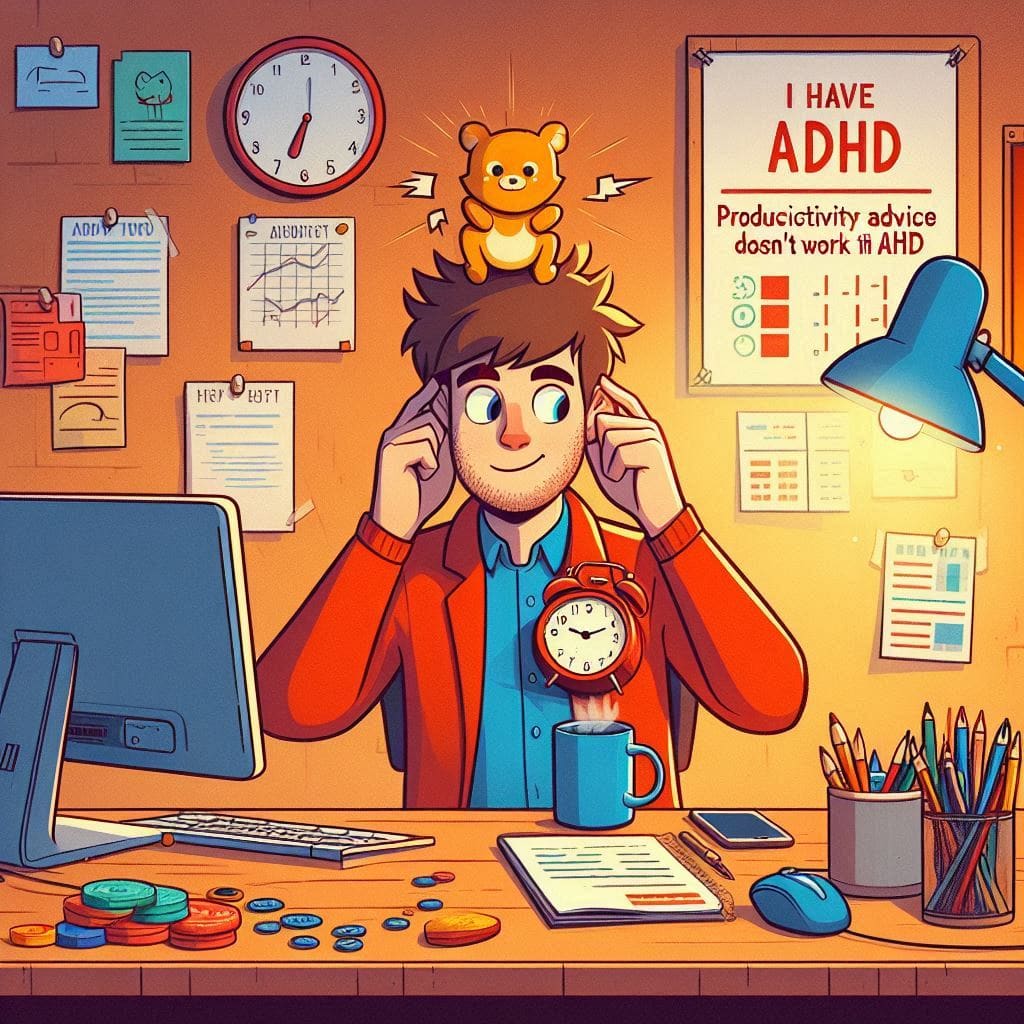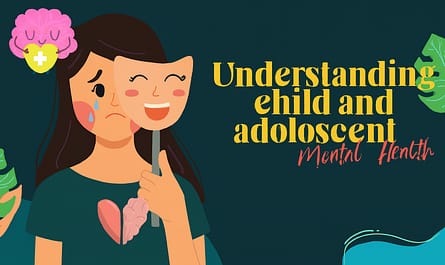That Actually Work for Me”

I’m addicted to productivity hacks.
Even though I know most of them won’t work for my ADHD brain, I can’t help but read about them, experiment with them, and, sometimes, even write about them. I think, deep down, I’m still searching for that one magical system that will somehow override my ADHD and transform me into a productivity machine.
Of course, as anti-productivity scholars like Oliver Burkeman remind us, we’re all searching for that elusive solution — that one method that promises to fix everything. But for those of us with ADHD, this search feels even more desperate.
It’s a cycle I’ve been through a thousand times. I’ll stumble across a shiny new technique or rediscover an old one, and for a day or two, I’ll be absolutely convinced that this is it — the answer to all my problems with overwhelm, procrastination, and unpredictable bursts of creativity.
And then, within 48 hours, the magic fades.
I’ve seen this pattern repeat endlessly in my life. I dive headfirst into a new system, go all in (meaning I follow it for a day or maybe a week at best), and then… I forget about it. Before I know it, I’m back on the hunt for the next “solution” that will finally fix my chaotic brain.
The truth is, many productivity hacks don’t work for ADHD brains because they rely on consistency — something that’s inherently challenging for us. Even if a method works initially, boredom eventually sets in, and we’re off looking for something new. Sticking to one habit or routine feels impossible because, well, it is.
In his video about toxic productivity, YouTuber ADHD Jesse explains why many of these hacks fail us. He points out that people with ADHD aren’t motivated by traditional rewards, consequences, or importance the way neurotypical brains are. It’s much harder for us to get started, even when we know there’s a looming deadline or an impending consequence.
I experience this all the time. Just last week, I had two reports due by 7 PM. I knew about them all day, worried about them, stressed about them… and yet, I didn’t start until 4 PM. I kept telling myself, “I’ll do it in a bit,” but that “bit” didn’t come until the pressure was so intense that I had no choice but to jump in.
So yeah, a lot of traditional productivity methods don’t work for me.
But some do.
After years of trial and error (and a lot of self-compassion), I’ve found a few hacks that actually work — or at least, work well enough that I keep coming back to them.
Here are 10 productivity hacks that have genuinely helped me manage my ADHD:
1. Body Doubling: Don’t Do It Alone
Body doubling is a game-changer. The idea is simple: work alongside someone else, either in person or virtually, while they do their own tasks. This external accountability keeps me focused and anchored.
I often hop on virtual coworking calls with friends or use apps like Focusmate. Knowing someone else is “watching” keeps me from wandering off to scroll through my phone.
2. The 5-Minute Rule: Just Start
This hack has saved me countless times. I tell myself, “Just do this for five minutes.” That’s it. No pressure to finish or make progress — just five minutes. And 9 times out of 10, once I start, I keep going.
The hardest part is always starting. Breaking that inertia makes all the difference.
3. Gamify Everything: Turn Tasks Into a Game
My brain loves novelty and rewards, so I trick it by turning boring tasks into games. I use apps like Habitica (where you can level up a character by completing tasks) or I set timers and challenge myself to “beat the clock.”
Even something as simple as rewarding myself with a treat after finishing a task can make a difference.
4. Visual Timers: Time It and See It
I thrive when I can see time passing. Visual timers, like the Time Timer app or even a simple countdown on my phone, keep me grounded. Seeing the time tick down makes it easier to stay on task because I know how much time I’m working with.
5. Task Batching: Group Similar Tasks Together
Switching between different types of tasks drains my mental energy. So, I batch similar tasks together. If I need to write multiple emails or reports, I’ll do them back-to-back. If I’m doing house chores, I’ll tackle them all at once.
Focusing on one “category” of tasks reduces the mental load of switching contexts.
6. Set Artificial Deadlines: Trick Your Brain Into Action
Since I struggle with self-imposed deadlines, I create artificial ones. I’ll set a timer or tell a friend, “I’ll send this to you by noon.” This external accountability lights a fire under me in a way that an internal deadline just… doesn’t.
7. Chunking Big Projects: One Small Step at a Time
ADHD brains get overwhelmed by big, vague tasks. So, I break everything down into tiny, actionable steps. Instead of “write a report,” I’ll write down:
- Outline the main points.
- Write the introduction.
- Draft one section.
Each small step feels manageable, and checking things off gives me a dopamine hit.
8. Use Music for Focus: The Right Soundtrack Matters
Certain types of music help me focus, especially instrumental tracks, lo-fi beats, or binaural beats. Sometimes, I’ll listen to the same playlist every time I work — a kind of auditory cue that signals, “It’s work time now.”
9. Embrace Imperfection: Done Is Better Than Perfect
Perfectionism often paralyzes me. I’ve learned to remind myself that done is better than perfect. It’s okay if the first draft is messy or the task isn’t flawless. Progress matters more than perfection.
10. Planned Breaks: Rest Before You Crash
I used to work until I burned out, but now I schedule intentional breaks. I follow techniques like Pomodoro (25 minutes of work, 5-minute break) or simply listen to my body. Planned breaks prevent me from hitting that ADHD wall where my brain just shuts down.
What’s the Common Thread?
Each of these hacks works because it taps into how my ADHD brain operates — using external structure, breaking tasks into smaller steps, and adding novelty or accountability to keep things interesting.
Not every method works all the time, and that’s okay. I’ve learned that flexibility is key. What matters is that I keep experimenting and adjusting until I find what fits my brain right now.
Because at the end of the day, there’s no “perfect” productivity hack. But these 10 methods? They’re the closest I’ve found to making my ADHD brain work with me instead of against me. And that’s a win in my book.



